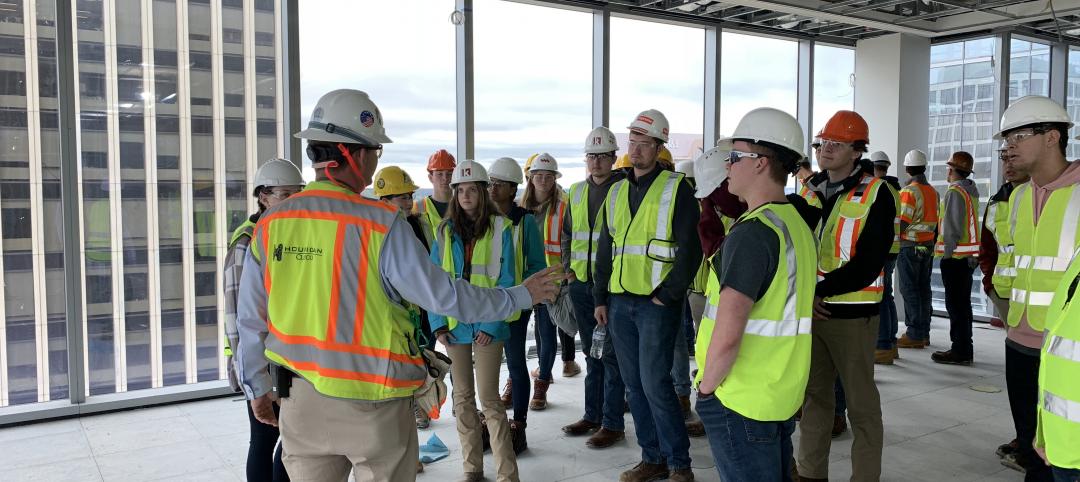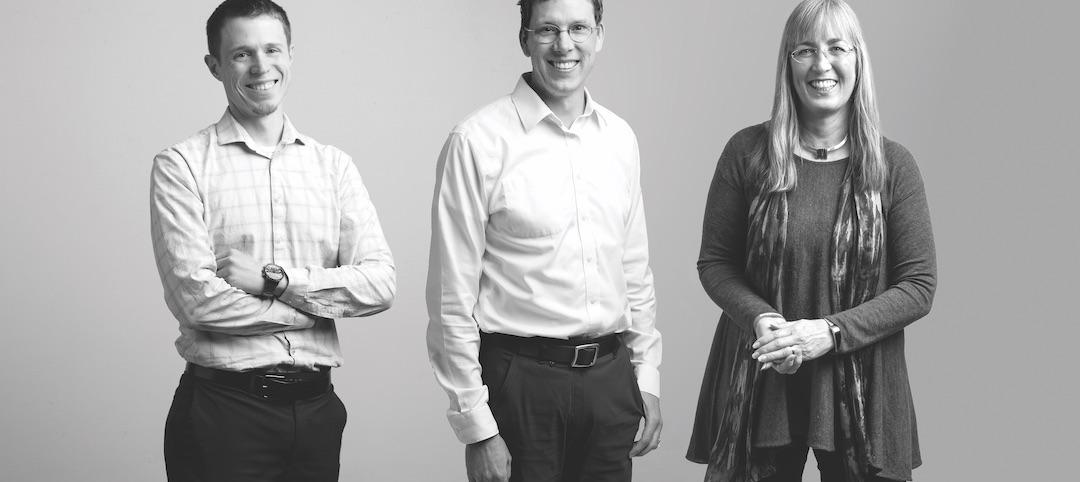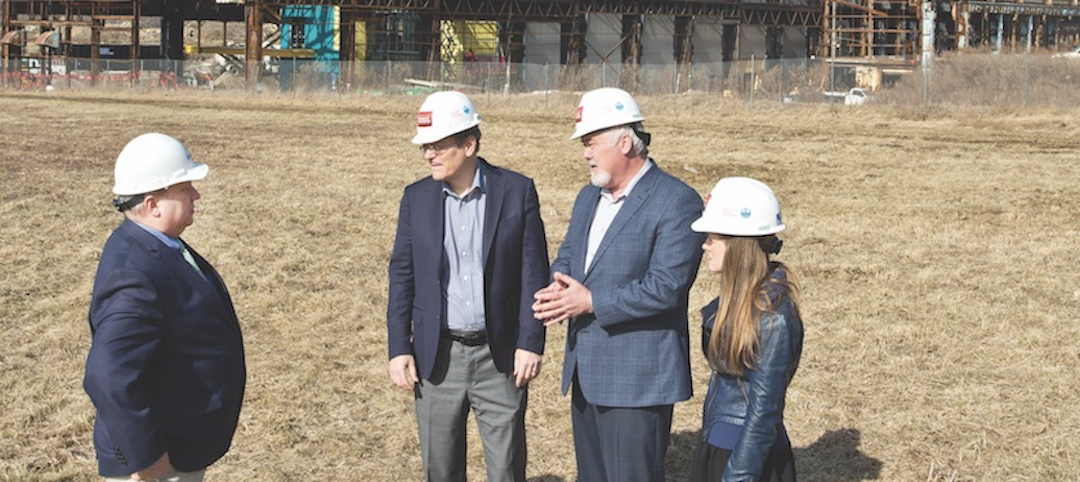Last month, Bedrock Real Estate Services joined three other developers in a joint venture to build a mixed-use complex on the site of the historic Brewster-Douglass public housing project. When it opened, in 1938, it was the first federally funded public housing development to admit African-Americans. Once home to as many as 10,000 residents, Brewster-Douglass was demolished in 2014.
The planned $267 million, 22-acre redevelopment would encompass up to 1,000 low-income to market-rate housing units, plus 30,000 sf of retail, commercial, and parking space. The venture, known as Choice Detroit LLC, includes two African-American–owned firms (KBK Enterprises and Ginosko Development Co.) and Enterprise Community Partners, a national developer of low-income housing. The joint venture represents a major step in Detroit’s application for up to $30 million in financing from HUD’s Choice Housing Program.
BD+C MOVERS AND SHAPERS
The People, Institutions, and Movements that are influencing design and construction in the U.S. and around the world.
Dan Gilbert – Detroit's Catalytic Converter
Judith Rodin – Crusader for Resiliency
Bruce Katz – Urban Evangelist
Millennials – The Disruptors
Alloy LLC – Vertical Integrator
Jerry Yudelson – Green Giant
The PANAMAX Effect – The New Panama Canal
Theaster Gates – Real Estate Artist
Bedrock is the commercial property management firm through which Detroit-born billionaire Dan Gilbert—who made his fortune from Quicken Loans (www.quickenloans.com), the mortgage lender he founded—has invested more than $2.2 billion. He’s been buying up left-for-dead properties and redeveloping them to lure businesses, investors, and residents back to this beleaguered city.
Detroit has been suffering from economic malaise for decades. At one point the city was $18 billion in debt. Seventy-eight thousand buildings were abandoned. Half its streetlights didn’t work. With so many vacant buildings, the 40-square-mile urban core lacked viable building density, according to Stephen Henderson, a columnist for the Detroit Free Press.
It didn’t help that then-Mayor Kwame Kilpatrick was forced to resign after being convicted on felony charges. In 2013, he was sentenced to 28 years in prison. Not until 2014 did the city stagger back from bankruptcy.
Gilbert, 54, makes no claim to be a philanthropist; first and foremost, he’s a businessman. But he's also a catalyst, someone who not only initiates change, but speeds it up.
He seized the opportunity to create change when, in 2010, he relocated Quicken Loans’ headquarters and 3,600 employees from suburban Livonia to downtown Detroit.
Today, 15,000 people work for Gilbert’s business interests in Detroit. Through early May, Bedrock had acquired 92 buildings in Detroit, and helped create more than 8,000 new jobs by attracting tenants like Nike and Ally Financial.
One of Bedrock’s recent projects is a two-acre lot on Woodward Avenue, the city’s main drag. Gilbert agreed to pay $15 million for the underground garage on the site, which cleared the way to redevelop the property. The proposed building will include 225,000 sf of commercial and retail space and 250 apartments. The design team includes SHoP Architects and Hamilton Anderson Associates.
“There’s a lot of history in this site,” says Jim Ketai, Bedrock’s Co-founder and Managing Partner. On it once stood the J.H. Hudson department store, which dated to 1911 (it was demolished in 1998). Ketai says that Bedrock respects the architectural preservation of the buildings it controls, and points to the 38-story Book Tower, whose elaborate Renaissance Revival architecture and delicate caryatid figures Bedrock is bringing back to life.
 The 38-story Book Tower (left), an example of Renaissance Revival design, and One Detroit Center (right), home of Ally Financial, are two of the many buildings being redeveloped by Dan Gilbert's Bedrock Real Estate Services.
The 38-story Book Tower (left), an example of Renaissance Revival design, and One Detroit Center (right), home of Ally Financial, are two of the many buildings being redeveloped by Dan Gilbert's Bedrock Real Estate Services.
A TECH-FOCUSED RECOVERY
Bedrock’s investment strategy in Detroit has been to focus on buildings on or near Woodward Avenue, where the new 3.3-mile QLINE rail loop should be running sometime next year. Gilbert bought the naming rights to the streetcar line for $5 million. He has donated $10 million to the project.
Because financing for distressed real estate is hard to obtain, Bedrock usually pays cash for buildings, says Ketai. It then redevelops the sites and seeks financing once tenants start signing up. Whether the property is developed for commercial or residential space depends on its location and history. All of Bedrock’s redevelopment projects, even the parking decks, have first-floor retail.
Bedrock’s endgame, says Ketai, is “to create a core environment where people want to work, live, and play.” The downtown hosts 100,000 workers during the weekday, but fewer than 6,000 people live there, largely because housing options are severely limited. Ketai says that there’s been “tremendous coordination” among investors, the city, and the state to create the kinds of redevelopment that will get businesses and people to come to downtown Detroit.
Ketai sees a different Detroit emerging, one that’s technology focused. Bedrock built a data center for Quicken Loans in the nearby Corktown neighborhood and is converting another Corktown building into a large maker space. While some critics argue that Detroit would be best served by becoming smaller, Ketai says, “We’re working with what exists.”
For all of its problems—and there are still plenty, including a 30% unemployment rate among African-American males—Detroit isn’t the basket case it was only a few years ago. This spring, the Kresge Foundation released its first Detroit Reinvestment Index, based on a recent poll of 307 corporate decision makers: 71% said they thought Detroit was an “excellent” or “good” place to invest in.
In his travels, Ketai is buoyed by the positive feedback he hears about Detroit’s future. Bedrock is “nowhere near done” acquiring land and buildings. “There’s a lot of opportunity that lies ahead,” he says. “This doesn’t happen if you just stick your toe in the water. Now it’s about continuing the momentum.”
Meanwhile, Gilbert is buying up buildings in Cleveland, where he owns a casino and the Cavaliers NBA basketball team, to see if the Motown model can work to revive distressed areas of the Rock and Roll Capital of the World.
 Dan Gilbert in 2014. Photo: Steve Jennings/Wikimedia Commons.
Dan Gilbert in 2014. Photo: Steve Jennings/Wikimedia Commons.
Related Stories
Women in Design+Construction | Jan 25, 2024
40 Under 40 Class of 2023 winner Kimberly Dowdell inaugurated as AIA 2024 President
The American Institute of Architects (AIA) has announced the inauguration of Kimberly Dowdell, AIA, NOMAC, NCARB, LEED AP BD+C, Principal and Director of Strategic Relationships at HOK and BD+C 40 Under 40 superstar, as its 100th president.
AEC Innovators | Mar 3, 2023
Meet BD+C's 2023 AEC Innovators
More than ever, AEC firms and their suppliers are wedding innovation with corporate responsibility. How they are addressing climate change usually gets the headlines. But as the following articles in our AEC Innovators package chronicle, companies are attempting to make an impact as well on the integrity of their supply chains, the reduction of construction waste, and answering calls for more affordable housing and homeless shelters. As often as not, these companies are partnering with municipalities and nonprofit interest groups to help guide their production.
AEC Innovators | Feb 28, 2023
Meet the 'urban miner' who is rethinking how we deconstruct and reuse buildings
New Horizon Urban Mining, a demolition firm in the Netherlands, has hitched its business model to construction materials recycling. It's plan: deconstruct buildings and infrastructure and sell the building products for reuse in new construction. New Horizon and its Founder Michel Baars have been named 2023 AEC Innovators by Building Design+Construction editors.
40 Under 40 | Oct 19, 2022
Meet the 40 Under 40 class of 2022
Each year, the editors of Building Design+Construction honor 40 architects engineers, contractors, and real estate developers as BD+C 40 Under 40 awards winners. These AEC professionals are recognized for their career achievements, passion for the AEC profession, involvement with AEC industry organizations, and service to their communities.
Movers+Shapers | Nov 7, 2021
Passage of $1.2 trillion infrastructure bill expected to spur stronger construction activity
AEC firms see federal investment as historic
Movers+Shapers | Apr 30, 2020
College programs help prepare students for careers in the construction industry
Universities with AEC programs hone their curricula and research to prepare students to hit the ground running in the construction industry.
Movers+Shapers | Apr 21, 2020
Management Training: AEC firms bring students into the real world
Students benefit substantively from internships offered by AEC firms.
Movers+Shapers | Apr 17, 2020
Meet the ‘AEC outsiders’ who are helping to push the industry into the new decade
AEC professionals have enough on their plates without becoming specialists in a new skill outside of their wheelhouse.
Movers+Shapers | Apr 15, 2020
Buildings as "open source platforms"
NBBJ’s year-old Design Performance Group helps building teams make smarter choices earlier.
Movers+Shapers | Apr 23, 2019
Steely resolve: Carnegie Mellon University fuels Pittsburgh's post-industrial reinvention
After the steel industry started collapsing in the late 1970s, Pittsburgh has been reinventing itself as a science, medical, and academic hub.
















